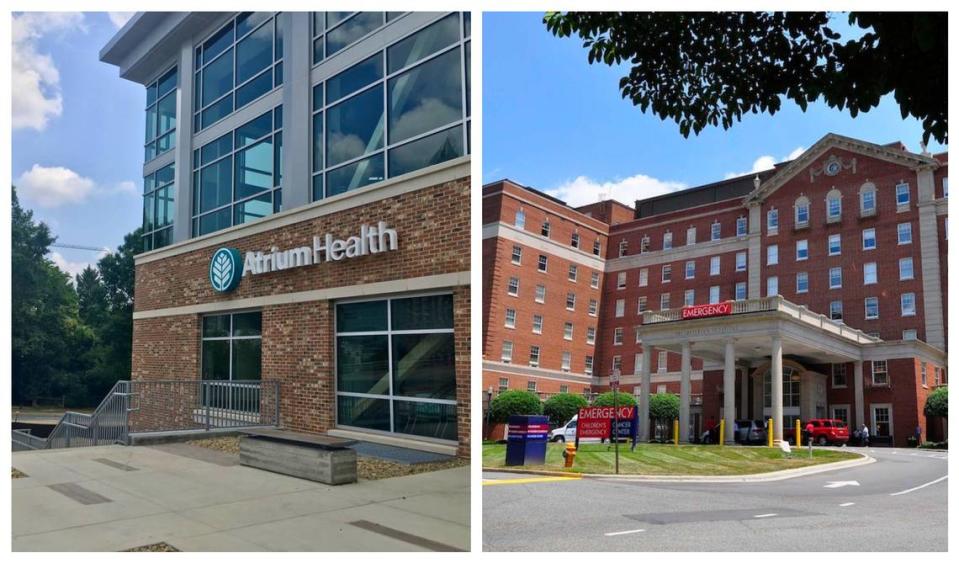COVID vaccine coming to NC soon, Cooper says. Here’s what that means for Charlotte
North Carolina finally has some good news related to the coronavirus pandemic — the state expects to be able to receive and distribute COVID-19 vaccines within “just a few weeks.”
The state is expecting to receive coronavirus vaccines from Pfizer, Gov. Roy Cooper said in a news conference Tuesday. And North Carolina could start receiving vaccines as early as Dec. 18, state Department of Health and Human Services Secretary Dr. Mandy Cohen said.
The Pfizer vaccines require “ultra-cold storage,” so health care providers with the capability to store the vaccines have been identified across the state, Cooper said.
Both of Charlotte’s major hospital systems, Atrium Health and Novant Health, will be ready to receive and distribute the Pfizer vaccine, according to the two systems. Both hospital systems have already placed orders for the refrigeration units needed to store the Pfizer vaccines.

Atrium will be able to store up to 300,000 doses and Novant will be able to store about 180,000 doses, the Observer has previously reported.
The state expects to receive up to 84,800 doses of the Pfizer vaccine in a first shipment once it is approved, Cooper said.
Vaccine priorities
The state will prioritize health care workers for vaccines first, Cohen said. But additional high risk adults could start getting vaccinations by January, she said.
Residents in long-term care facilities, such as nursing homes will also get vaccinated in the early stages of distribution, Cohen said.
Who will get COVID-19 vaccines first in Charlotte? Here are answers to FAQ.
In Mecklenburg, nearly 30 congregate living settings are experiencing active COVID-19 outbreaks, county health data released Tuesday show. That includes 533 cases among staff and residents, according to a Charlotte Observer analysis. Rising case tallies and outbreaks reflect a higher prevalence of coronavirus in the community, Mecklenburg Public Health Director Gibbie Harris has said.
The Moderna vaccine could be approved soon after the Pfizer vaccine, Cohen said. And N.C. would expect to receive doses of that vaccine, as well.

Once those vaccines are approved, Cohen said the state expects to get weekly allocations of vaccines.
“Having a safe vaccine within reach is an extraordinary achievement,” Cohen said. “But at the same time, it is not a quick fix. It will take several months to have enough supplies so that anyone can readily get a vaccine.”
Vaccines and public trust
Some experts have worried public mistrust of vaccines will limit the number of people willing to get a vaccine. But Cooper said he’ll be “ready to roll up my sleeves” to get the new coronavirus vaccine.
”We want people to get vaccinated when it’s your turn...” Cooper said. “We want people to have confidence in it.”
A spokesman for Charlotte Mayor Vi Lyles did not respond to a request for comment. In Mecklenburg, a group of hospital leaders and emergency management partners are handling local vaccine distribution efforts.
But Harris has cautioned that vaccines won’t be “readily available for a while,” even as coronavirus trends deteriorate amid the holiday season and colder weather. She’s emphasized the need for continued mask wearing and social distancing to slow the spread of COVID-19.
The county has recorded 43,983 cumulative cases since the start of the pandemic, the North Carolina Department of Health and Human Services reported Tuesday afternoon.
That’s a rate of 396 infections for every 10,000 residents. County officials say 456 residents have died of coronavirus-related complications.
Want more information on what COVID-19 vaccine distribution means for Charlotte? We’ve answered your questions here.

 Yahoo Movies
Yahoo Movies 
